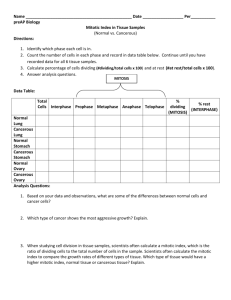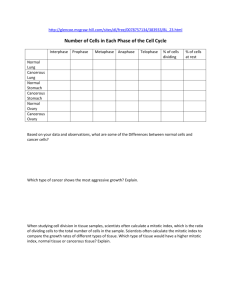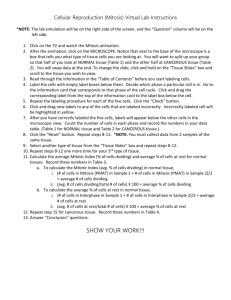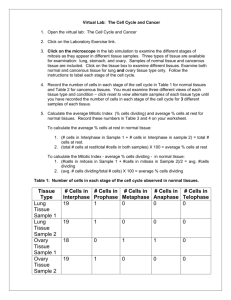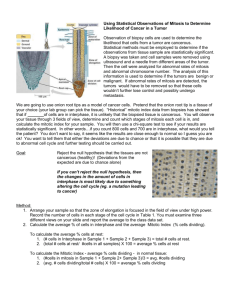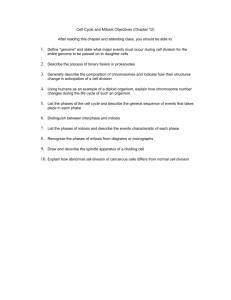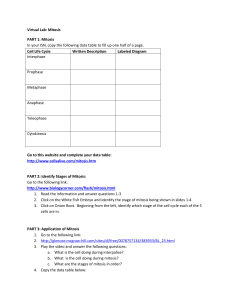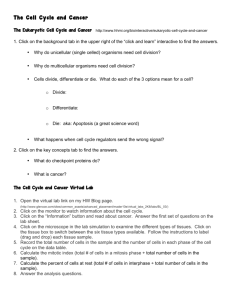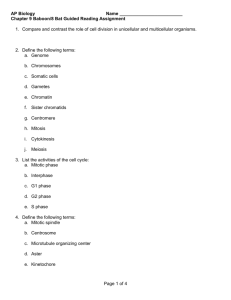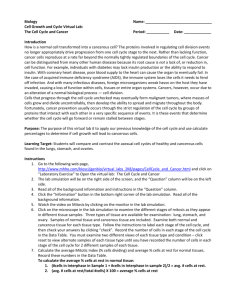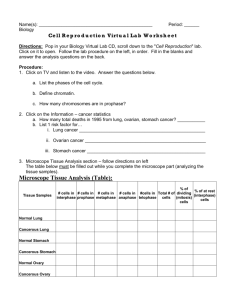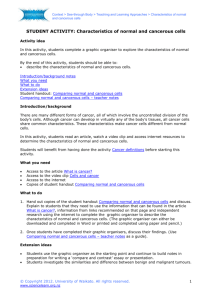Virtual Lab: The Cell Cycle and Cancer
advertisement
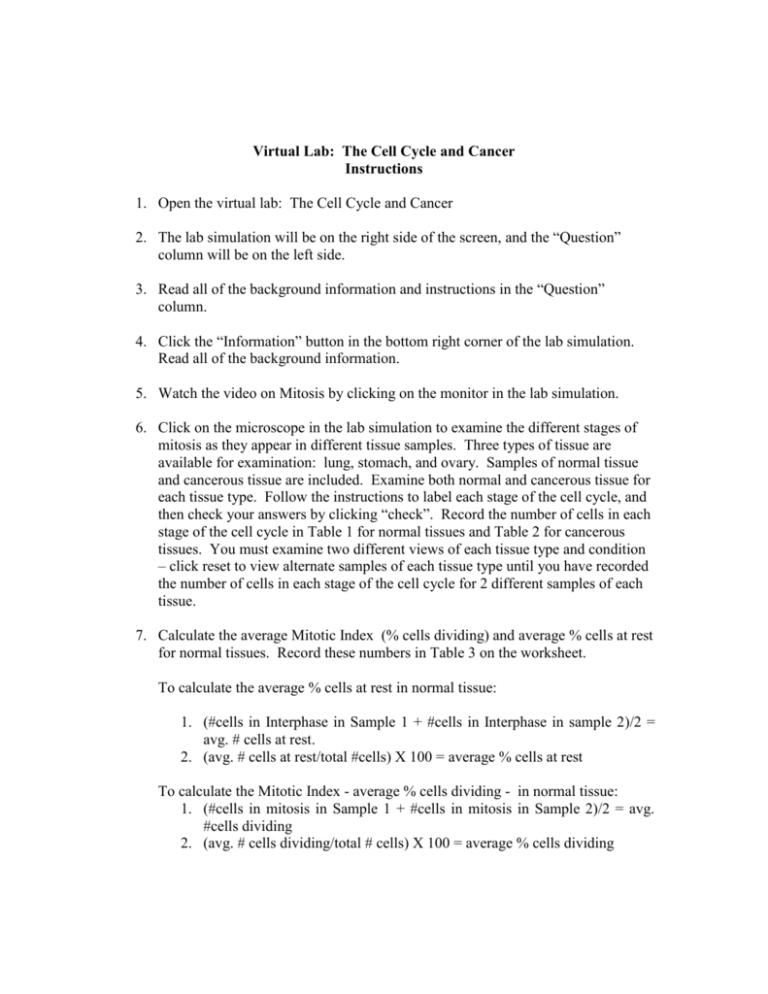
Virtual Lab: The Cell Cycle and Cancer Instructions 1. Open the virtual lab: The Cell Cycle and Cancer 2. The lab simulation will be on the right side of the screen, and the “Question” column will be on the left side. 3. Read all of the background information and instructions in the “Question” column. 4. Click the “Information” button in the bottom right corner of the lab simulation. Read all of the background information. 5. Watch the video on Mitosis by clicking on the monitor in the lab simulation. 6. Click on the microscope in the lab simulation to examine the different stages of mitosis as they appear in different tissue samples. Three types of tissue are available for examination: lung, stomach, and ovary. Samples of normal tissue and cancerous tissue are included. Examine both normal and cancerous tissue for each tissue type. Follow the instructions to label each stage of the cell cycle, and then check your answers by clicking “check”. Record the number of cells in each stage of the cell cycle in Table 1 for normal tissues and Table 2 for cancerous tissues. You must examine two different views of each tissue type and condition – click reset to view alternate samples of each tissue type until you have recorded the number of cells in each stage of the cell cycle for 2 different samples of each tissue. 7. Calculate the average Mitotic Index (% cells dividing) and average % cells at rest for normal tissues. Record these numbers in Table 3 on the worksheet. To calculate the average % cells at rest in normal tissue: 1. (#cells in Interphase in Sample 1 + #cells in Interphase in sample 2)/2 = avg. # cells at rest. 2. (avg. # cells at rest/total #cells) X 100 = average % cells at rest To calculate the Mitotic Index - average % cells dividing - in normal tissue: 1. (#cells in mitosis in Sample 1 + #cells in mitosis in Sample 2)/2 = avg. #cells dividing 2. (avg. # cells dividing/total # cells) X 100 = average % cells dividing 7. Do the same calculations for cancerous tissue to complete Table 4 on the worksheet. 8. Answer questions 1 - 5 on the Cell Cycle and Cancer Worksheet.
